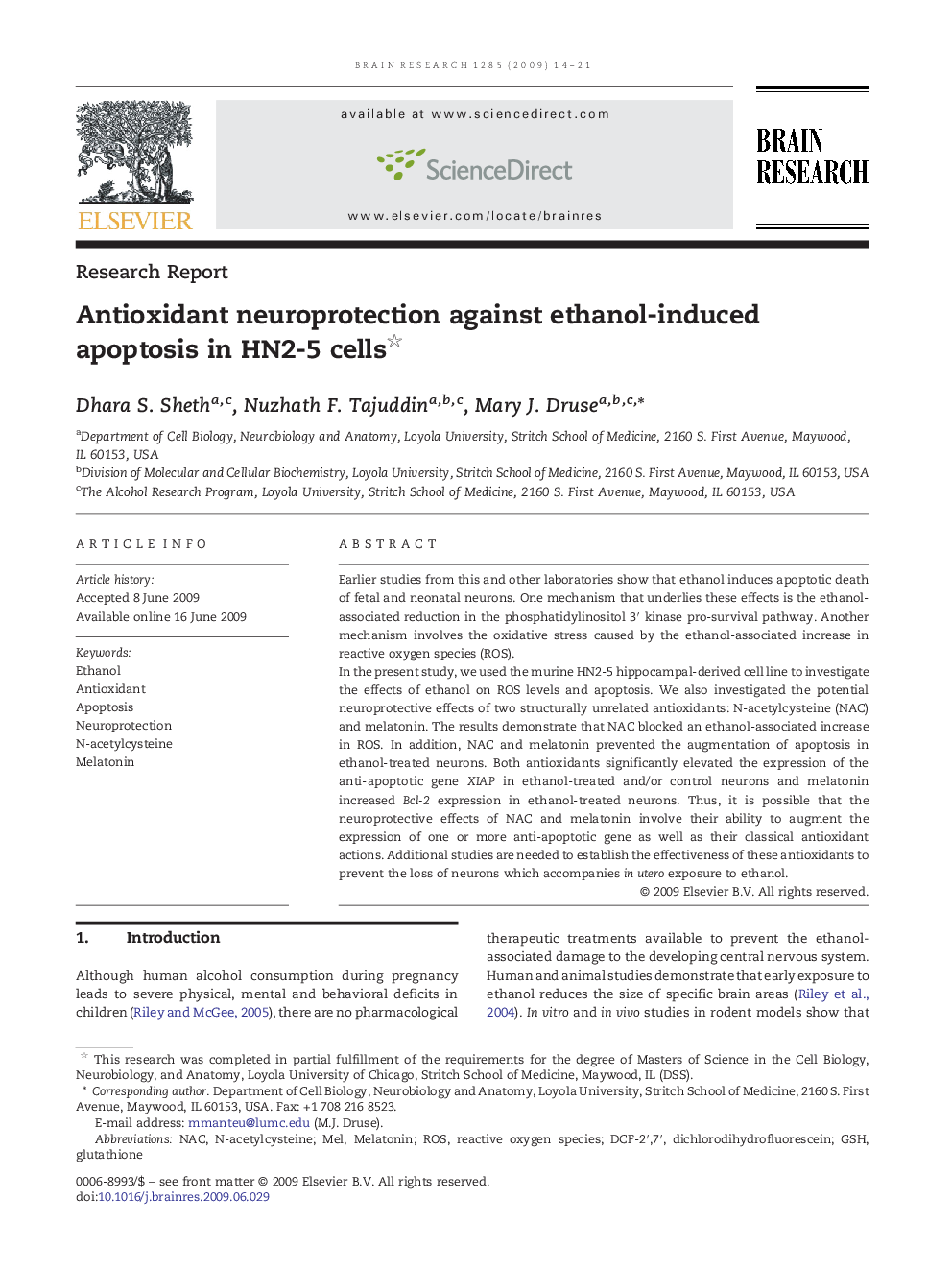| Article ID | Journal | Published Year | Pages | File Type |
|---|---|---|---|---|
| 4328027 | Brain Research | 2009 | 8 Pages |
Earlier studies from this and other laboratories show that ethanol induces apoptotic death of fetal and neonatal neurons. One mechanism that underlies these effects is the ethanol-associated reduction in the phosphatidylinositol 3′ kinase pro-survival pathway. Another mechanism involves the oxidative stress caused by the ethanol-associated increase in reactive oxygen species (ROS).In the present study, we used the murine HN2-5 hippocampal-derived cell line to investigate the effects of ethanol on ROS levels and apoptosis. We also investigated the potential neuroprotective effects of two structurally unrelated antioxidants: N-acetylcysteine (NAC) and melatonin. The results demonstrate that NAC blocked an ethanol-associated increase in ROS. In addition, NAC and melatonin prevented the augmentation of apoptosis in ethanol-treated neurons. Both antioxidants significantly elevated the expression of the anti-apoptotic gene XIAP in ethanol-treated and/or control neurons and melatonin increased Bcl-2 expression in ethanol-treated neurons. Thus, it is possible that the neuroprotective effects of NAC and melatonin involve their ability to augment the expression of one or more anti-apoptotic gene as well as their classical antioxidant actions. Additional studies are needed to establish the effectiveness of these antioxidants to prevent the loss of neurons which accompanies in utero exposure to ethanol.
